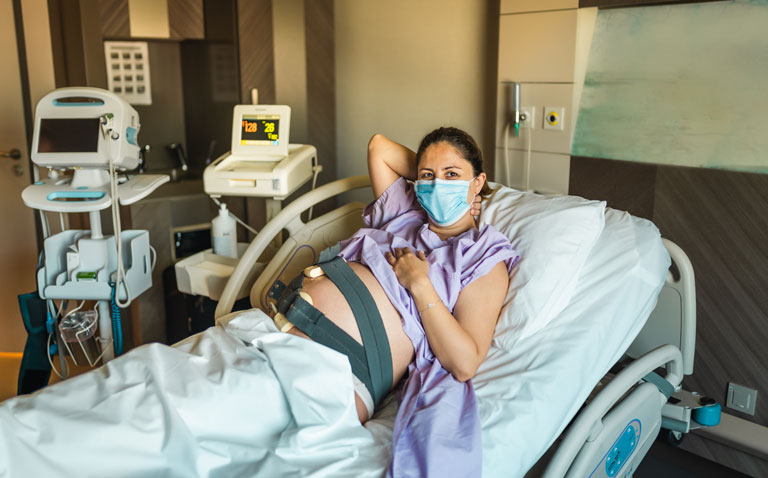Obstetric complications including those related to hypertensive pregnancy disorders have been found to be higher in women infected with COVID-19
Obstetric complications such as those related to hypertensive conditions are significantly higher among pregnant and postpartum women infected with COVID-19 compared to uninfected individuals.
This was the finding from a retrospective analysis of data by researchers from the Division of Maternal-Fetal Medicine, Department of Obstetrics and Gynecology, University of Utah Health, US.
There is a good deal of evidence accumulated during the COVID-19 pandemic which shows how pregnant and recently pregnant women with COVID-19 admitted to hospitals for any reason are more likely to be admitted to the intensive care unit or needing invasive ventilation than non-pregnant women.
Hypertensive disorders during pregnancy represent one of the leading causes of maternal and perinatal mortality worldwide with preeclampsia estimated to complicate 2-8% of pregnancies globally. Postpartum haemorrhage (PPH) is another complication, defined as a blood loss ≥ 500 mL and a considerable cause of severe maternal morbidity, affecting up to 10% of deliveries.
However, whether or not infection with COVID-19 is associated with an increased risk of such obstetric complications is currently unclear and was the purpose of the current retrospective analysis by the US team. They included women who had a positive PCR or antigen test for COVID-19 during pregnancy or within 6 weeks postpartum.
The researchers included a group of uninfected pregnant women and who served as a control. The primary outcome of interest was a composite of death from any cause or serious maternal morbidity related to several common obstetric complications: hypertensive disorders (e.g. eclampsia, haemolysis, elevated liver enzymes and low platelet syndrome, pulmonary oedema and severe hypertension), postpartum haemorrhage or infection other than COVID-19. The main secondary outcome was caesarian birth.
Obstetric complications and COVID-19 infection
A total of 14,104 women with a mean age of 29.7 years were included, of whom, 2352 had a positive COVID-19 test result. Among those who tested positive, the majority (80.1%) had done so during their third trimester and 4.4% had tested positive postpartum, a median of 18 days after delivery.
Among those testing positive, the primary outcome occurred in 13.4% compared to 9.2% in those without COVID-19 (adjusted relative risk, RR = 1.41, 95% CI 1.23 – 1.61) and there were 5 maternal deaths.
The risk of hypertensive disorders was also significantly higher among infected women (RR = 1.53, 95% CI 1.31 – 1.79). The risk of postpartum haemorrhage was not significantly different (RR = 1.13, 95% CI 0.83 – 1.53) but there was a significant increased risk of other infections (RR = 2.08, 95% CI 1.41 – 3.05).
In addition, the presence of COVID-19 was significantly associated with intensive care unit admission (RR = 5.82, 95% CI 4.09 – 8.29). There was also no significant increased risk of caesarean birth among those with COVID-19 (RR = 1.05, 95% CI 0.99 – 1.11).
Infection with COVID-19 was also associated with a higher incidence of preterm birth (RR = 1.15, 95% CI 1.02 – 1.30).
The authors concluded that infection with COVID-19 increases the risk of obstetric complications such as maternal mortality or serious morbidity.
Citation
Metz TD et al. Association of SARS-CoV-2 Infection With Serious Maternal Morbidity and Mortality From Obstetric Complications JAMA 2022










